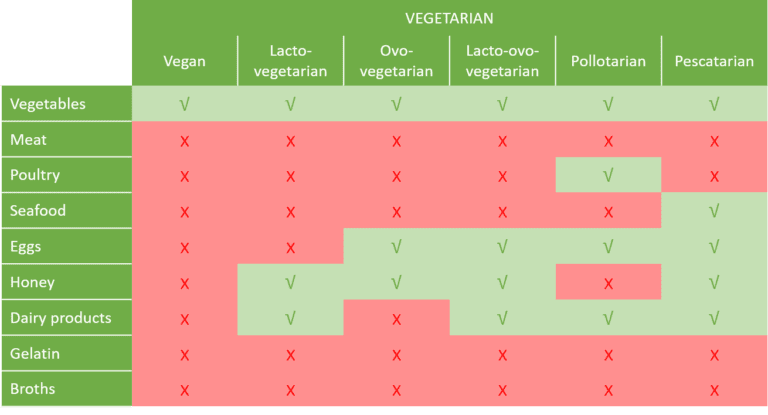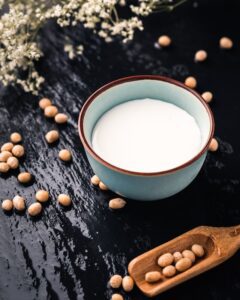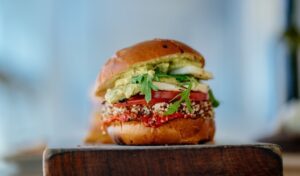Page Contents
There are more and more people adopting sustainable and healthy lifestyle, the number of people reducing the consumption of meat or animal products is progressively increasing. As a result, vegetarianism has become a global consumer trend.
Why vegetarian?
There are basically 4 main reasons of becoming a vegetarian:
- Health
- Minimise the exposure to animal growth hormones and harmful substances (haem, nitrates, nitrites, heterocyclic amines, and polycyclic amines).
- Concern about meat borne diseases, e.g., Bovine Spongiform Encephalopathy (mad-cow disease), monkeypox virus, SARS, Sudan Ebola virus, Zaire Ebola virus, hepatitis, norovirus, rotavirus, and many more.
- Reduce risk factors to heart diseases, pneumonia, diabetes, obesity, and cancer (colon cancer, prostate cancer, breast cancer, lymphoma, and stomach cancer).
- Religious
- Religions such as Hinduism, Jainism, Sikhism, and Buddhism believe in kindness and non-violence towards all living things.
- Ethical
- Concern about animal welfare.
- Prevent overuse of antibiotics, growth hormones, and anthelmintics that increases prevalence of antimicrobial resistance in livestock.
- Against domestic livestock mass slaughtering and abuse.
- Environmental
- Avoid exploitation of environmental resources. Reduce the amount of land, water, and oil resources that livestock consume and the amount of pollution they produce.
- Reduce greenhouse gas emissions.
Unfortunately, there are also some people adopting the vegetarian diet because they are living below the poverty line. They have very limited resources and simply cannot afford to eat meat.
Are you a vegetarian? Let’s be more specific
Vegetarian diet is a general term for a diet that is mainly plant products, no meat, poultry, or seafood. Dairy products and eggs are optional. As this diet is becoming popular, people with different diet preferences are following different variations of vegetarian diet (Figure 1):

Obviously, you can tell from Figure 1 that vegetarians are consuming vegetables and avoiding meats and meat products (broths, gelatin). However, there are some vegetarians who do not eat garlic and onion. This is mostly motivated by religious or cultural understanding. For example, the Jain follows lacto-vegetarian diet and excludes all root and underground vegetables such as potato, garlic, onion. This is to prevent harming small insects and microorganisms, and to prevent killing the entire plant by uprooting it.
Within the group of vegans, there is a sub-group called beegan. Beegan basically follows the vegan diet, except that they are also consuming honey and bee products such as propolis, royal jelly, beeswax.
There is also another sub-group called ‘Fruitarian’ that only consume fruits, nuts and seeds. The main concern of this diet is nutritional deficiencies whereby fruitarians frequently have low levels of vitamin B12, calcium, vitamin D, iodine and omega-3 fatty acids. Lacking which can lead to many health problems such as anemia, tiredness, immune system dysfunction, and osteoporosis.
Concerns of being a vegetarian
Often, the main deterrent for people adopting vegetarian diet is the concern of nutrient imbalance, in particular, the proteins source. In actual fact, there is no lack of protein in vegetarian diet, for example, legumes (beans, peanuts, peas, lentils), nuts, tofu, soy milk, tempeh, deep green leafy vegetables, and whole grains. For vegetarian who consume dairy products, milk, cheese, and yogurt are excellent sources of protein. For pescatarian, eating fish and seafoods are also a good choice as well.

Meatless meat, yea or nay?
In recent years, plant-based meat is gaining popularity because people believe that it uses significantly fewer natural resources and puts less pressure on the environment. However, many studies have shown that it may not be a healthier choice. Simply because it is highly processed, high in sodium and preservatives, lack of essential vitamins and minerals.

Apart from plant-based meat, there is also flour-based mock meat or washed flour seitan, which is commonly seen in Chinese vegetarian cuisine. Seitan is made from wheat gluten, a stringy protein that gives dough its stretchy texture to mimic real meat. It is made so flavourful that you may forget the real purposes of being a vegetarian. The risk concern is that your diet may be becoming imbalance and overly concentrated in wheat or grain products.
Conclusion
The vegetarian diet is for better health, love animals and protect our planet. To really enhance the experience and appreciate the joy of being a vegetarian, here are a few considerations for you:- If you want to be a vegetarian, be a genuine one. Forget about the unhealthy faux meat and potato chips that only satisfy your guilt pleasure and doesn’t bring any nutritional values.
- You may encourage, but do not force other people (including your children) to be a vegetarian. Vegetarian is not a one-size-fit-all diet, everyone has their own nutritional needs at different stages of life, especially growing-up kids.
- Eat fresh, eat balance. Avoid eating processed and preserved foods even though they are for vegetarian. Many of those plant-based snacks and meals are highly processed, full of calorie, or contain high quantities of sugar, salt, and saturated fat.
